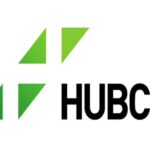KARACHI: The Sindh Excise Department has reported an impressive collection of Rs5.7 billion under various tax heads, including infrastructure cess, motor vehicles, properties, etc., for the month of July 2019.
(more…)Author: Mrs. Anjum Shahnawaz
-

Car sales plunge by 42pc in July 2019
KARACHI: Car sales have witnessed a sharp decline of 42 percent in July 2019 owing to massive depreciation in local currency and tax measures taken in the budget 2019/2020, analysts said on Monday.
According to statistics released by Pakistan Automobile Manufacturers Association (PAMA), the car sales were 12,482 units in July 2019 as compared with 21,344 units in the same month of the last year.
Industry analysts said that the local currency witnessed sharp decline during current calendar year, which hampered the growth in car sales.
The significant decline was witnessed in cars with engine capacity of 1300CC and above. The sales of this segment fell by 62.6 percent to 3,607 units in July 2019 when compared with 9,659 units in the same month of the last year. The production of this category was also declined to 5,582 units as compared with 9,833 units.
The sales of small cars with engine capacity of 1,000 CC also fell by 53.73 percent during the period under review. The sales of cars under this category fell to 2,051 units in July 2019 as compared with 4,433 units in the same month of the last year.
The sales of cars below 1,000 CC, however, increased to 5,310 units from 4,783 units.
-

Stock market gains around 800 points on improved investors’ confidence
KARACHI: The stock market on Monday gained by around 800 points on improved confidence of investors after after significant decline during past many trading sessions.
The benchmark KSE-100 index of Pakistan Stock Exchange (PSX) closed at 29,562 points as against 27,765 points showing an increase of 798 points.
Analysts at Arif Habib Limited said that the KSE-100 index increased significantly today, after an initial stutter of +/- 100 points.
Apparently, the mutual funds, which have been a major seller during the past several sessions, were not selling with the same aggression as in recent past.
E&P and Banks, which have received several bantering in the past couple of sessions, moved north with most volume observed in Banks.
Besides, the anticipation of lower current account deficit for the month of July 2019, talks of EMOF by State Entities were making rounds, which caused investors to remain optimistic and buy.
Several scrips, among Steel, Cement and Banking sectors hit upper circuit.
Banking sector led the volumes table with 15.2 million shares, followed by Cement (13.6 million) and O&GMCs (11.1 million).
Among scrips, TRG topped the volume charts with 7.5 million, followed by SMBL (6 million) and MLCF (5.9 million).
Sectors contributing to the performance include Banks (+257 points), E&P (+142 points), Fertilizer (+116 points), Cement (+63 points), and Power (+60 points).
Volumes also increased from 65.2 million shares to 102.5 million shares (+57 percent DoD). Average traded value also increased by 15 percent to reach $ 24.8 million as against $ 21.5 million.
Stocks that contributed significantly to the volumes include TRG, SMBL, MLCF, HASCOL and UNITY, which formed 30 percent of total volumes.
Stocks that contributed positively include HBL (+84 points), OGDC (+73 points), MCB (+70 points), ENGRO (+59 points) and PPL (+53 points). Stocks that contributed negatively include NESTLE (-15 points), ABOT (-6 points), MTL (-5 points), AGIL (-1 points) and SHEL (-1 points).
Related Stories
-

Rupee gains 34 paisas on improved foreign inflows
KARACHI: The Pak Rupee gained 34 paisas against dollar on Monday as inflows of home remittances and export receipts helped the local unit to appreciate.
The rupee ended Rs158.62 to the dollar from last Friday’s closing of Rs158.96 in interbank foreign exchange market.
Currency experts said that the inflows of home remittances related to Eid ul Azha and improved export receipts helped the local unit to improve the value.
The foreign currency market was initiated in the range of Rs158.80 and Rs158.90. The market recorded day high of Rs158.80 and low of Rs158.60 and closed at Rs158.62.
The exchange rate in open market was also witnessed appreciation in local currency. The buying and selling of dollar was recorded at Rs158.50/Rs159.00 from last Friday’s closing of Rs159.00/Rs159.50 in cash ready market.
Related Stories
-

Commerce ministry extends date for submitting DLTL claims
KARACHI: The ministry of commerce has extended the last date for submission /resubmission of claims of Drawback of local Taxes and Levies (DLTL).
The State Bank of Pakistan (SBP) on Monday informed banks that the commerce ministry extended the date for claiming DLTL.
The central bank said that in terms of Commerce Division, Ministry of Commerce & Textile’s letter F.No. 5(2)/2017-SO(M&I) dated July 30, 2019, it has been decided to extend the deadline for submission/ resubmission of claims from claimants to Authorized Dealers (ADs) under Para 1(4)(a) and 1(4)(d) of the subject Order till August 15, 2019.
Further, the deadline for submission of the claims from ADs to the field offices of State Bank of Pakistan – Banking Services Corporation (SBP-BSC) shall be August 30, 2019.
Likewise, the last date for submission of incremental claims from exporters to ADs under Para 1(4)(b) of the subject Order, shall be October 16, 2019 and from ADs to SBP-BSC October 31, 2019.
-

Auction of confiscated vehicles to be held on August 20 at ASO Headquarters
KARACHI – The Model Customs Collectorate (MCC) Preventive has officially announced the upcoming auction of a large number of confiscated vehicles. The event is scheduled to take place on August 20, 2019, at the Anti-Smuggling Organization (ASO) Headquarters, located at NMB Wharf, Ghass Bandar, East Wharf, Karachi.
(more…) -

Commerce ministry issues clarification to ban on Indian imports
The Ministry of Commerce has issued a clarification regarding the ban on imports from India, stating that Letter of Credit (LC) or Bill of Lading (BL) issued prior to August 09, 2019, will be allowed for customs clearance.
(more…) -

Non-ATL commission agents to pay up to 24 percent withholding tax
ISLAMABAD: Federal Board of Revenue (FBR) has said that commission agents not appearing on Active Taxpayers List (ATL) shall pay 24 percent withholding tax during tax year 2019/2020 effective from July 01, 2019.
The FBR issued Withholding Tax Card for tax year 2019/2020 saying that the collection of withholding tax is payable under Section 233 of Income Tax Ordinance, 2001.
The revenue body said that Federal Government, Provincial Government, Local authority, Company AOP constituted by or under any law or principal shall collect withholding tax from recipient of brokerage or commission or agent at the time the brokerage or commission is actually paid.
The following rates shall be applicable:
(i) Advertising Agents, the tax rate shall be 10 percent for compliant taxpayers and 20 percent for persons not appearing on ATL.
(ii) Life insurance agents where commission received is less than 0.5 million per annum, the tax rate shall be 8 percent for compliant taxpayers and 16 percent for persons not appearing on ATL.
(iii) Persons not covered in (i) & (ii), the tax rate shall be 12 percent for compliant taxpayers and 24 percent for persons not appearing on ATL.
-

Hubco declares commercial operation date for 1320MW coal-based power plant
KARACHI: China Power Hub Generation Company (CPHGC) – a joint venture between The Hub Power Company Ltd. (HUBCO) and China Power International Holding – has declared the Commercial Operations Date (COD) of its 1320MW imported coal power plant and integrated jetty with coal transhipment capacity of 4.2 MTPA, a statement said on Sunday.
Developed in record time, as per schedule and within projected costs, the CPHGC project is a part of the early harvest energy projects under China Pakistan Economic Corridor (CPEC) framework, making it truly a project of national and strategic significance.
The plant will add 9 billion kWh of electricity to the national grid every year, meeting electricity needs of 4 million households in the country. The Project’s two units achieved synchronization with the National Grid on December 28, 2018 and May 28, 2019, respectively, while the Integrated Coal Jetty became operational in December 2018 with arrival of the first shipment of coal.
“The successful completion of CPHGC project has fortified the dream of energy independence of Pakistan. Since the synchronization earlier in May, we conducted extensive testing of the systems to make sure we deliver quality while keeping HSE as our top-priority. I am glad that this Pak-China synergy has resulted in engineering excellence and has fulfilled our promise of providing Pakistan with affordable and ample energy” said Khalid Mansoor, CEO HUBCO.
It is important to note that the Project has also delivered on various social commitments for improving the lives of the local community of Hub and Lasbella.
Together with its partners, CPHGC has setup a school in Gadani, a floating jetty for fishermen in Abbas Village and has conducted various training and development programs for the local youth of Balochistan.
The Pakistani principal of the project, The Hub Power Company Limited currently produces over 2920 MW through its four plants spread over Baluchistan, Punjab and Azad Jammu & Kashmir.
HUBCO is the only power producer in Pakistan with four projects listed in the CPEC out of which three are under-construction namely Thar Energy Limited (TEL) and Thalnova Power Thar (Pvt.) Ltd. and Sindh Engro Coal Mining Company (SECMC) at Thar Block II.
The power generation capacity of the Company will enhance to over 3580MW after completion of the aforementioned power projects.
-

SBP sets maximum payment limits for board members of banks, DFIs
KARACHI: The State Bank of Pakistan (SBP) on Saturday amended Prudential Regulations G-1 and sets maximum limits for payment to board members of banks and Development Financial Institutions (DFIs).
(more…)
